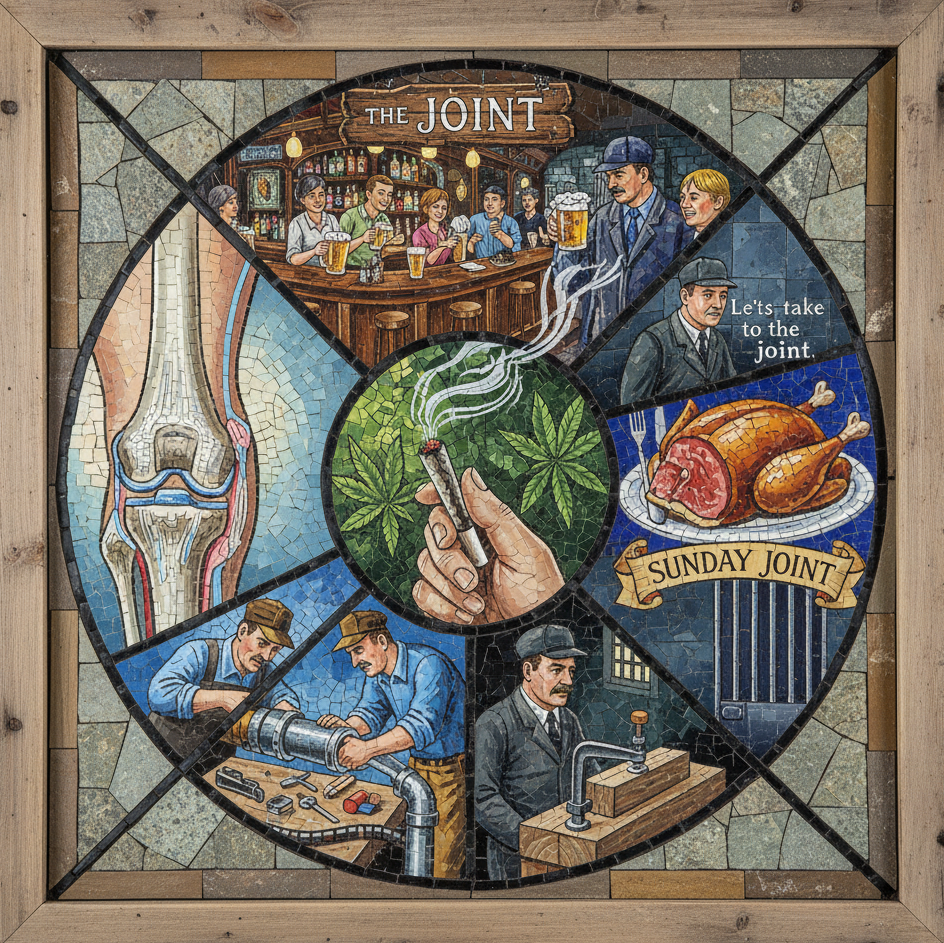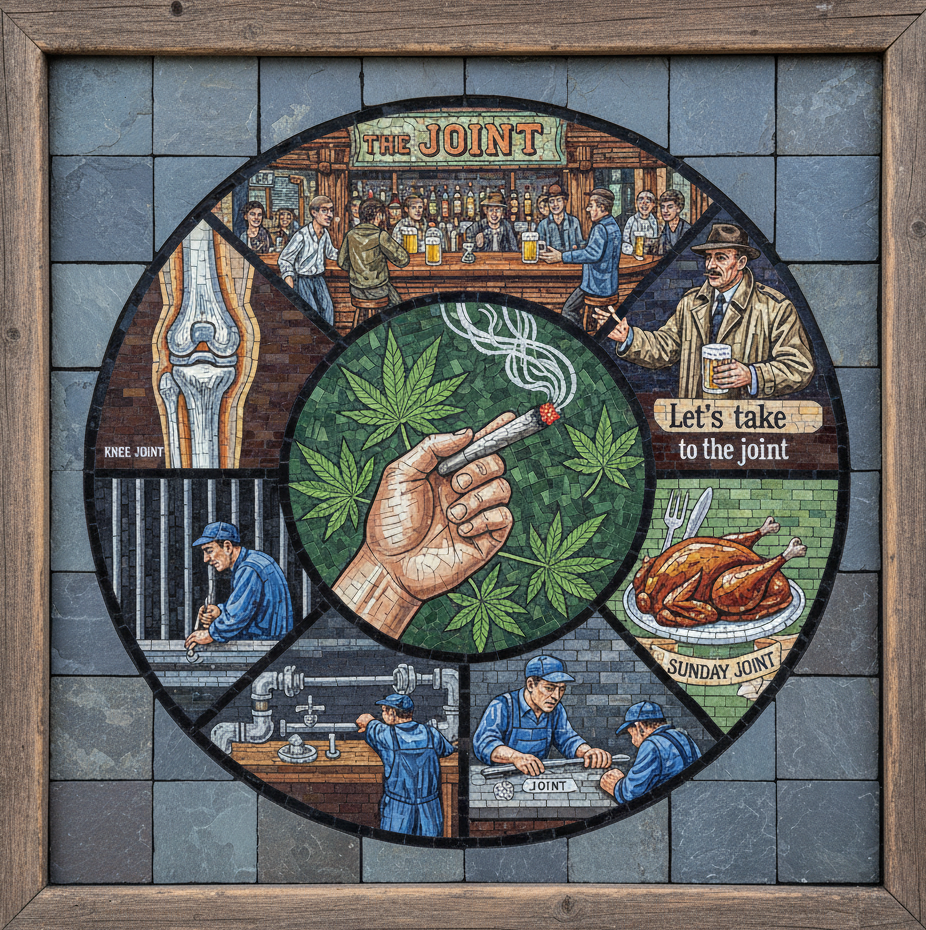Si eres de habla hispana, la versión en español es mejor para ti, debes hacer clic 👉 AQUÍ
**
It's not just a joint
**
When studying English-speaking culture and encountering such a versatile word, what better way to learn about it than by exploring the different contexts in which it can be used? Let me explain.
As a noun
a) Anatomical and mechanical context (formal)
This is the most literal meaning. It refers to the point where two things are joined together, such as a joint (in the body) or a connection (in mechanics). So you can use it in expressions like these:
‘I have pain in my knee joint.’
‘The plumber needs to fix the joint in the pipe.’
‘A dovetail joint is a strong way to connect two pieces of wood.’
b) Context of a Place or Establishment (Informal / Slang)
We use it to refer to a place, often a cheap and unpretentious restaurant or bar. It has a very casual and colloquial feel, like a dive, pub, place, or joint (in a good way). So you can use it in expressions like this:
‘Let's go to that new burger joint downtown.’
‘It's just a little pizza joint, but they have the best food.’
‘This place is a real dive joint, but the music is great.’
c) Marijuana Context (Very Informal / Slang)
This is one of the most well-known meanings in popular culture worldwide. A marijuana cigarette. In Spanish: porro, canuto, faso, etc. So you can use it in expressions like this:
‘The police found a joint in his car.’
‘They were passing a joint around at the party.’
d) Prison Context (Very Informal / Slang)
It is used specifically as a synonym for prison, jail, or the slammer. So you can use it in expressions like these:
‘He spent ten years in the joint for robbery.’
‘He just got out of the joint.’
Note: It is almost always used with ‘the’ ⇾ ‘the joint’.
There are other circumstances where the word ‘joint’ is widely used, but that would duplicate the content of this post. “Joint” as an adjective, as an idiomatic expression; the key, as always in English, is context. Paying attention to the words surrounding ‘joint’ will immediately tell you which of its many meanings is being used.
I would like to clarify, friends @freewritehouse and @daily.prompt, that I set out to explain the use of the word ‘joint’ in English-speaking culture because I am a teacher by vocation and, despite my age, teaching fulfils and satisfies me.
When studying English-speaking culture and encountering such a versatile word, what better way to learn about it than by exploring the different contexts in which it can be used? Let me explain.
As a noun
a) Anatomical and mechanical context (formal) This is the most literal meaning. It refers to the point where two things are joined together, such as a joint (in the body) or a connection (in mechanics). So you can use it in expressions like these: ‘I have pain in my knee joint.’ ‘The plumber needs to fix the joint in the pipe.’ ‘A dovetail joint is a strong way to connect two pieces of wood.’
b) Context of a Place or Establishment (Informal / Slang) We use it to refer to a place, often a cheap and unpretentious restaurant or bar. It has a very casual and colloquial feel, like a dive, pub, place, or joint (in a good way). So you can use it in expressions like this: ‘Let's go to that new burger joint downtown.’ ‘It's just a little pizza joint, but they have the best food.’ ‘This place is a real dive joint, but the music is great.’
c) Marijuana Context (Very Informal / Slang) This is one of the most well-known meanings in popular culture worldwide. A marijuana cigarette. In Spanish: porro, canuto, faso, etc. So you can use it in expressions like this: ‘The police found a joint in his car.’ ‘They were passing a joint around at the party.’
d) Prison Context (Very Informal / Slang) It is used specifically as a synonym for prison, jail, or the slammer. So you can use it in expressions like these: ‘He spent ten years in the joint for robbery.’ ‘He just got out of the joint.’ Note: It is almost always used with ‘the’ ⇾ ‘the joint’.
There are other circumstances where the word ‘joint’ is widely used, but that would duplicate the content of this post. “Joint” as an adjective, as an idiomatic expression; the key, as always in English, is context. Paying attention to the words surrounding ‘joint’ will immediately tell you which of its many meanings is being used.
I would like to clarify, friends @freewritehouse and @daily.prompt, that I set out to explain the use of the word ‘joint’ in English-speaking culture because I am a teacher by vocation and, despite my age, teaching fulfils and satisfies me.
**
**
 Cover of the initiative.
Cover of the initiative.




